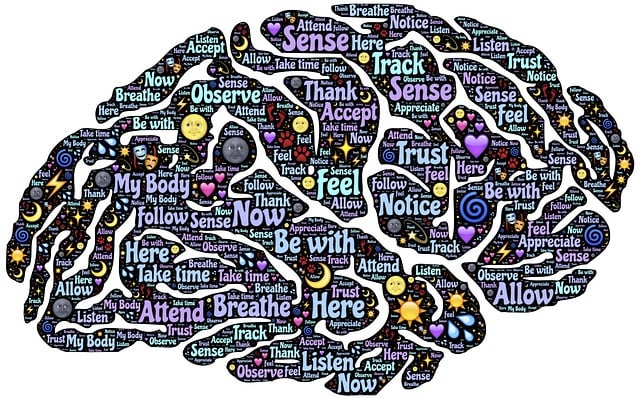In a fast-paced, stressful world, mental wellness coaching, exemplified by Englewood Alcohol Abuse Therapy, equips individuals with emotional intelligence to manage challenges like stress, anxiety, depression, and substance abuse. Effective programs integrate evidence-based practices (e.g., CBT), diverse interventions (mindfulness meditation, self-care routines), and community outreach to reduce stigma and promote holistic recovery. Regular evaluation ensures tailored, effective therapies while public awareness campaigns encourage proactive mental wellness steps.
Mental wellness coaching programs are gaining prominence as essential tools in promoting holistic health. This article explores the development and implementation of such programs, with a specific focus on addressing alcohol abuse through evidence-based practices like Englewood Alcohol Abuse Therapy. By understanding the growing need for mental wellness support, designing effective curricula, and evaluating successful interventions, we can revolutionize mental health care, offering tailored coaching that empowers individuals toward lasting well-being.
- Understanding the Need for Mental Wellness Coaching Programs
- Designing Effective Coaching Curricula and Interventions
- Implementing and Evaluating Englewood Alcohol Abuse Therapy Approaches
Understanding the Need for Mental Wellness Coaching Programs

In today’s fast-paced and often stressful world, mental wellness is an increasingly important aspect of overall health. This need has driven the development of coaching programs that focus on empowering individuals to manage their mental well-being effectively. Mental wellness coaching offers a unique approach, providing personalized guidance to help clients navigate challenges related to stress, anxiety, depression, and even substance abuse issues like alcohol dependence, as seen in Englewood Alcohol Abuse Therapy.
Coaching programs are designed to foster emotional intelligence, a key component in enhancing mental wellness. By teaching individuals how to recognize and manage their emotions, these programs equip them with valuable skills for coping with life’s demands. Furthermore, community outreach program implementations can extend these benefits to wider populations, promoting overall well-being and reducing the stigma associated with seeking support for mental health concerns, including stress management.
Designing Effective Coaching Curricula and Interventions

In designing effective coaching curricula for mental wellness programs, such as those offered by Englewood Alcohol Abuse Therapy, it’s essential to integrate evidence-based practices and diverse intervention strategies. This includes incorporating techniques like mindfulness meditation to enhance clients’ emotional regulation skills. By teaching individuals how to manage their moods effectively through regular practice, coaches can empower them to cultivate a sense of inner calm and resilience in the face of stress or triggers.
Moreover, integrating self-care routine development as a central component ensures that coaching goes beyond mere talk therapy. Encouraging clients to prioritize physical, emotional, and mental well-being fosters a holistic approach to recovery and overall health. This may involve setting achievable goals for healthy habits, such as regular exercise, balanced nutrition, and dedicated time for activities that bring joy or relaxation, thereby contributing to improved mental wellness outcomes.
Implementing and Evaluating Englewood Alcohol Abuse Therapy Approaches

Englewood Alcohol Abuse Therapy is a critical component of any comprehensive mental wellness coaching program. Implementing evidence-based strategies tailored to address alcohol dependence and its underlying causes is essential. These approaches can range from individual counseling sessions that focus on cognitive behavioral therapy (CBT) techniques, to group support meetings that foster a sense of community and shared experience. Regular evaluation of these therapies is vital for gauging their effectiveness and making necessary adjustments. By closely monitoring client progress, coaches can ensure the interventions are aligned with individual needs, promoting successful recovery journeys.
Public Awareness Campaigns Development plays a complementary role in combating alcohol abuse by increasing understanding and reducing stigma associated with seeking help. These campaigns, often centered around Anxiety Relief and Emotional Healing Processes, can equip individuals with knowledge about available resources and encourage them to take proactive steps towards wellness. Through multi-platform outreach, coaches and advocates can reach broader audiences, fostering an environment that prioritizes mental health and discourages alcohol abuse.
Mental wellness coaching programs are becoming increasingly vital in addressing various issues, including alcohol abuse. By designing effective curricula and interventions, as demonstrated by successful Englewood Alcohol Abuse Therapy approaches, we can empower individuals to lead healthier lives. Implementing these programs requires a thoughtful evaluation process to ensure their efficacy and adaptability to diverse needs. Ultimately, these initiatives contribute significantly to the overall well-being of communities, offering a promising path toward better mental health outcomes.














